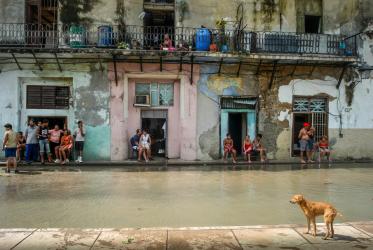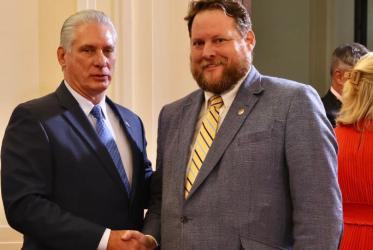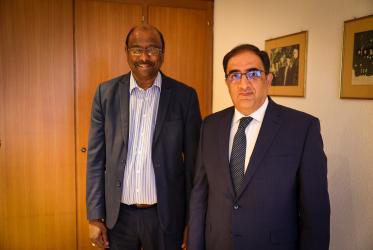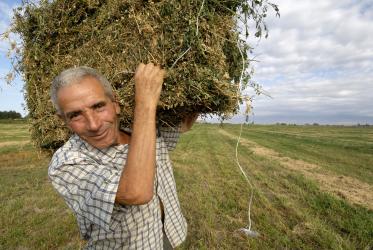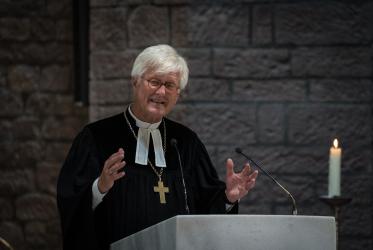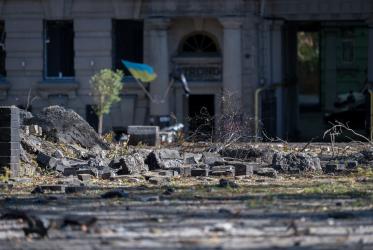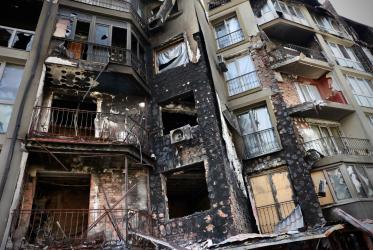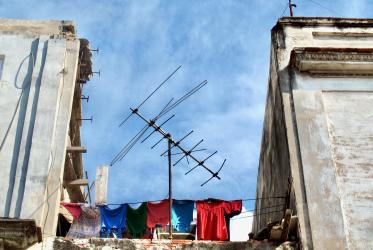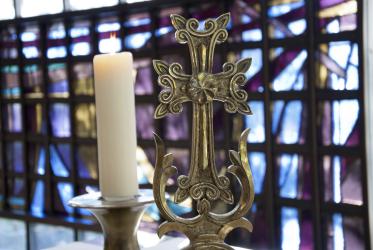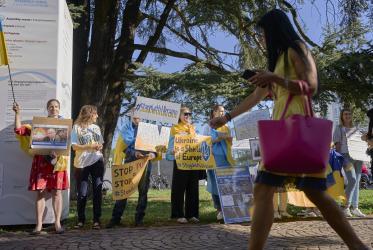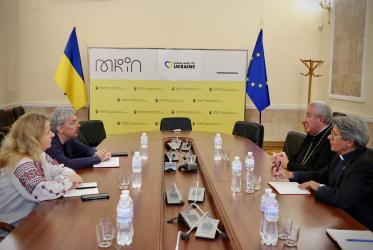Displaying 1 - 20 of 118
WCC delegation visits Ukraine
10 May 2023
WCC denounces continuing attacks on civilians in Ukraine
16 January 2023
WCC acting general secretary visits Moscow
17 October 2022
Ukraine: Responding to humanitarian need
08 September 2022
WCC releases minute on consequences of the 2020 Nagorno-Karabakh war
08 September 2022

